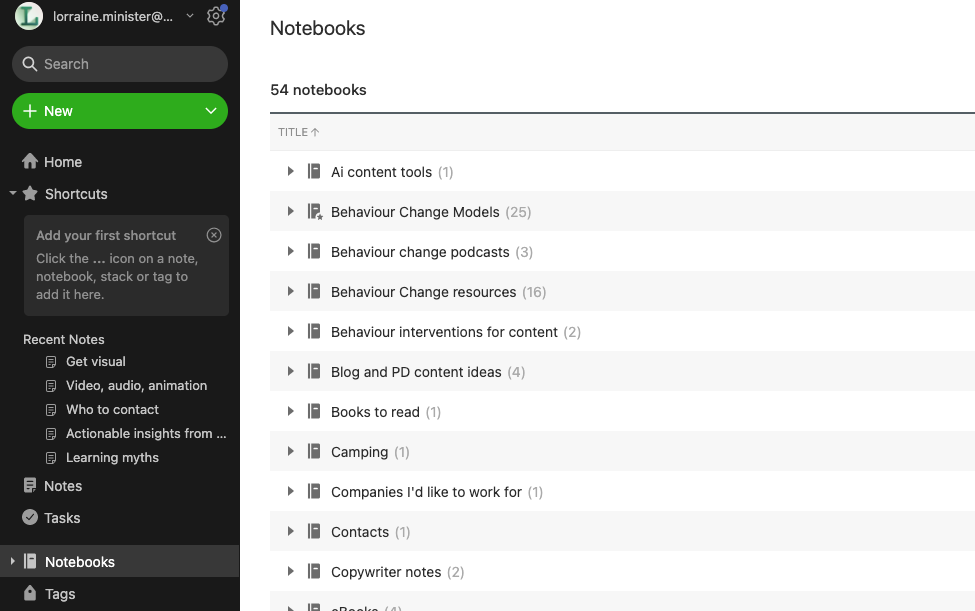
Have you ever considered the impact of note-taking on your creativity and productivity? In Chris Bailey’s latest book, Hyperfocus: How to Work Less and Achieve More, he explains how writing your ideas down leads to both increased creativity and productivity.
Streamline your attention by reining in distracting thoughts.
When you’re working on a project or task, it’s easy to get sidetracked by unrelated thoughts and ideas. By taking notes you can externalize them, and free up your mind to focus on the task at hand.
For example, let’s say you’re working on a report and an idea for a new product comes to mind. Instead of trying to hold on to that idea in your head and risk getting sidetracked, jot it down in your notebook. This way, you can come back to it later without losing focus on your current task.
Capture new ideas so they don’t get forgotten.
Catching distracting ideas and recording them means you can revisit them later on. You won’t be scrambling to find them, or forgetting them and missing opportunities in the future.
Write down your ideas without judgment. You don’t need to evaluate whether your new ideas are good or not. That comes later.
Be organized with how you record your notes. Put journals around your house and office. Use a note-taking app. Or do both. Create a system that makes it easy and quick to record your ideas, no matter where you are.
I use Evernote to capture new ideas, categorizing and organizing them into notebooks.

Above is a screenshot of my constantly growing Evernote folders, full of ideas and resources for the future
Often the most creative ideas come to us when we’re relaxing. This is when our brain has the space to connect seemingly unrelated ideas into something new. While we’re in the shower, on a walk, or in traffic. Even when we’re sleeping. Be ready to record your ideas during these times. A notebook on the bedside table is a classic strategy used by many.
Make time to review your new ideas and notes.
Schedule a time each week to examine your new ideas. Decide which ones you’ll take action on. Explore them deeper and get purposeful about what you’ll do to make them happen.
Discard the ideas you won’t take action on, but keep a record of them because they might be later-on ideas rather than right-now ideas.
In summary.
When you write down your new ideas it gives you the mental space to keep focusing on the task at hand, increasing your focus and productivity. At the same time, you’re not losing the new and potentially valuable ideas, which could lead to breakthroughs or new opportunities in the future.
Why not experiment with note-taking? See what works best for you!

